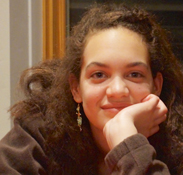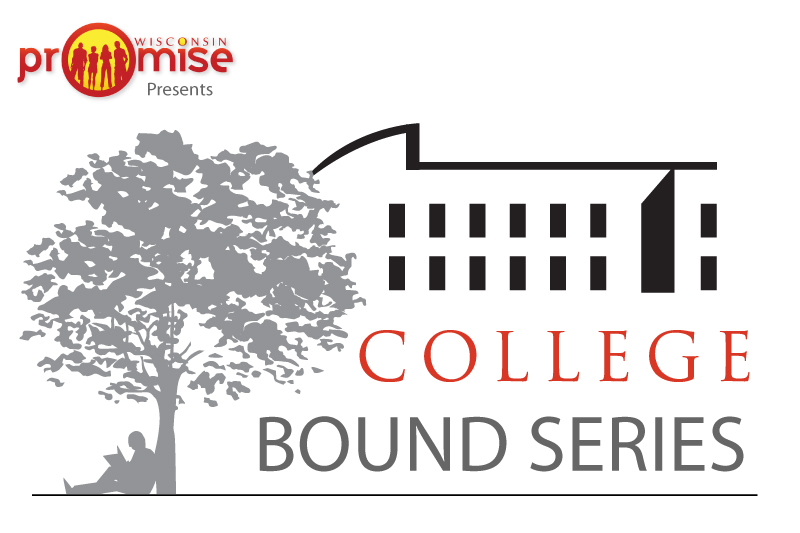Meet Deb and Claire, a mother and daughter sharing their experiences in navigating the transition from school to college. In this article, each of them share their perspectives on a variety of issues related to choosing a college.

Claire
My name is Claire Wisniewski and I am a college student at small liberal arts college. At this point, I am halfway through my first year at college. The process of looking at colleges was terrifying. I have a mild to moderate hearing loss, ADHD, and significant learning disabilities (including an executive functioning disorder). This basically means I suck at organization and most of all math.
I wanted to write these blogs because I know everyone’s brain works differently, we all have our challenges and these shouldn’t deter us from going to college. My favorite color is orange. My favorite animal is an otter. I want to travel to as many countries as I can.
Deb
And I’m Deb Wisniewski, Claire’s mom. I am proud to have a talented and loving daughter, who is a great friend and passionately interested in social justice issues.
Claire is our one and only child, so it’s been an adventure trying to help her figure out where she should go to college and what supports and accommodations she would need once she gets there.
Start with gifts & interests:
Claire
Because I am writing this blog, let’s talk about me. I like drawing, singing, dancing, and writing poetry. My biggest strength is reading. I am also good at languages, writing, and understanding people.
When visiting colleges, I found it helpful to know your interests and to tell people them. We all have things we are good at. This is what college is all about, finding what you are passionate about through your gifts and interests. If you know these you already have a head start, even if you don’t know exactly what you want to do for the rest of your life.
How do you do that? Make a list. Have it ready before you even walk into the building. I found that if I have this list, even though I have to explain about how I can’t hear very well and basic math problems are very difficult, I can also tell people about what I am good at. Everyone has more to him or her than what meets the eye. This is another important aspect that colleges should understand.
Deb
So often, our children with disabilities are defined by what they can’t do. Going to college should be about our child’s gifts and talents, not about what they can’t do. Sure, we need to make sure that they have the proper accommodations and supports, but when start the college search process, we want to begin with thinking about where they will find their passion and joy. By focusing on gifts and talents, we increase the chances of them having a successful college experience.
So what can a parent do to help? Start by listening to your student. What makes him/her light up? What are they doing or working on that they can’t stop talking about? Watch and listen for clues. Help them make a list of what they love to do. Claire loves to sing and to dance. She’s good at these and they help her deal with stress. She’s probably not going to major in either of these in college, but we wanted a school that would offer opportunities for her to participate in these activities.
If your student knows what he/she wants to do, that’s great. Some schools ask students to declare a major right away. Others prefer that students “explore” different areas of learning the first one to two years. So consider your student’s interests as you begin exploring potential schools.
Consider what’s important to you besides the academic offerings:
Claire
College will be your second home, so you need to consider what is important to you besides what classes they offer. For me, because I was planning to attend a college in another state, feeling comfortable was very important to me. I wanted to live in an atmosphere that was the least terrifying. But I also wanted to stretch myself, which is why going to college out of state was so important.
Considering what is important to you when looking at a college means being very picky. For example, food was very important to me when choosing a college. I love food and good food is very helpful in determining your well-being. I can only study well if I have eaten well. If the food was not satisfactory, I included that in the list of “cons” I was making for each college. Making a list of the pros and cons of each college you’re considering is very helpful.
Another thing that was important to me was the size of the school. For me, big schools are overwhelming. I wanted a small school. But not so small that it was isolated from everything and that your social life was nonexistent. The same went for the city; I didn’t want to worry about getting lost in a sea of people every time I stepped off campus.
Lastly nothing can make you feel more at home than your bedroom. Don’t expect the dorms to be a luxury suite but if really crappy dorms make you uncomfortable that might be a thing to consider.
If you are the complete opposite from me and are a daredevil, the same thing stands. Figure out what is important to you.
Deb
I did not realize until we started actively looking at colleges how important the campus environment was to my daughter. At first, I disregarded her comments about the food, the way the campus “felt”, whether the town/city felt welcoming, etc. I guess I was thinking that she would be too busy with school to pay attention to the local community, most freshman dorms are just cinderblock structures and that campus food is… well, it’s just campus food. Boy, was I wrong!
As a parent, pay attention to your student’s comments about various colleges. Whether you visit in person or online, what strikes him or her about each school and the surrounding community? Are they excited about all the activities going on or is it overwhelming?
You may not be able to visit many schools, but when your student narrows down the options, make every effort to visit the “finalists”. Staying overnight in the dorm is often an eye-opener for students. You don’t know until you get there if a school is a good fit for your student.
Connect with Disability Supports and Services:
Claire
Disabilities are not going to go away. For many of us, they stick around for life. This is okay – it just means you have to advocate for yourself more than other people do.
This is also what college is about, advocating for yourself. To do well in college, I need help. Disabilities Supports and Services should be a key place to get help. I wanted to make sure these services were ones I trusted and that gave me help while allowing me to advocate for myself.
If you visit a college, ask about the Disability Supports and Services. Meet the people in charge so you can determine whether or not they are people you can have trusting relationships with.
Deb
Every college has an office that provides supports and services for students with disabilities. However, each of these offices operates a bit differently. This is why it’s critical that you and your student talk with the staff in this office at every school your student is considering. Do this from the start! Do not wait until after they’ve applied and been accepted.
Here are some questions we explored with the Disability Supports and Services at our student’s school:
- What kinds of supports do you typically offer students? We learned that our daughter’s school would not wake her up in the morning or send her reminders about assignments. However, they would meet with her regularly (twice a week at the beginning) about organization and time management. They also document a student’s disabilities and work with them to identify needed accommodations, help him/her communicate with professors, and trouble-shoot problems. Be careful about schools that have a pre-determined package of services based on a student’s disabilities. Supports and services work the best when they are decided based on an individual’s needs, as well as strengths.
- Who are the staff that who would work directly with your student? It was important for our daughter to develop a relationship with the staff person that provides her support. Her complex learning disabilities can only be understood when someone gets to know her. This valuable relationship also helps the staff to recognize her talents and that she’s more than a package of labels.
- How do staff members interact with your student? This is probably one of the most important things to pay attention to. Do the staff talk directly to the student or do they direct their comments to you? Do they speak respectfully with the students or do they talk down to them? Do they only talk about what the student is legally entitled to or do they talk about self-determination and self-advocacy? Ideally, we wanted a school that was nurturing and supportive, but that recognized that our student should be making the decisions that affect her life.
- How does the office respond to questions and issues? There were many questions and issues that needed to be figured out before Claire started her freshman year. Where and how would she get her medications? What about safety issues in the dorm and on campus? What if her hearing aids broke? Consider your student’s typical day, especially what he/she depends on you to do. How will those things happen or be taken care of in college?
- How are students involved with providing supports and services? The schools we liked the best emphasized that students with disabilities can and should use their gifts to support each other. For example, students can help each other as mentors, academic tutors, or with time management and organization.
Other tips for choosing a school:
Claire
One of the best ways to learn about a college is to visit it and see the different kinds of people on campus and feel the atmosphere for yourself. If you are unable to visit a college, you can talk to the students who attend that college on the phone and ask them questions. Finding an insider’s opinion in a college is a very honest approach. The officials try to sell you the college. Students tend to tell you the truth.
I found looking up the retention and graduation rates for each college was important. This gave me a sense of how helpful the college actually was. Looking up the number of students who got jobs after they graduated was also important because this meant that the students found what they had learned to be useful.
Deb
The college search process is exciting and scary… for both students and parents! Remember that it is a process and that you are partnering with your student to find the best fit. Ask your students questions and really listen for the answers… you may be surprised by what you hear. Good luck and enjoy the ride!
About the Authors

Claire Wisniewski
More about Claire
Deb Wisniewski
More about Deb
Share this Post

